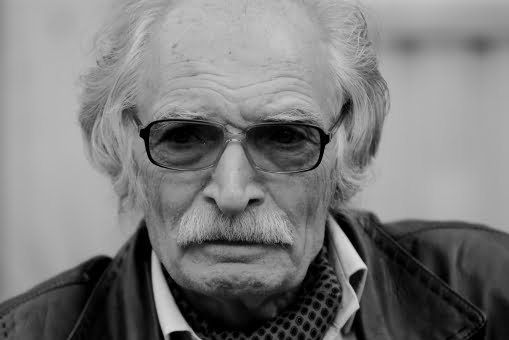
Mahmud Doulatabadi
- Iran
- Zu Gast beim ilb: 2010
Mahmud Doulatabadi was born in 1940 in Dowlatabad, province Chorasan (Iran). As a boy he worked as a shepherd, as a shoemaker’s assistant in his father’s workshop and also as a hairdresser. At 13 he became a seasonal worker in the fields. He could not finish high school for financial reasons. He then went to Tehran, where he did odd jobs and was admitted to the ensemble of a theater. He also became involved in a home for the spiritual education of children and adolescents.
In March, 1975 he was imprisoned for two years on political grounds. His first story was published in the theatrical and literary magazine »Anahita«. Since the late 1960s he has devoted himself to writing epic novels: »Kelidar« (1969-1983), »Dja-je Chali-ye Ssolutsch« (1979; tr: Soluch’s Empty Place ) and a still unfinished cycle »Ruzegar-e separishodeh-e mardom-e salkhordeh« (three volumes since 1988; tr: The Bygone Days of Old Folks). »Kelidar«, a book of more than 3,000 pages, has sold 100,000 copies in Iran and is considered the most important novel of Iranian culture. In 2009 the novel »Der Colonel« (tr: The Colonel) was published (only in German as the first publication worldwide) which Doulatabadi had already written 25 years earlier. It is a black as night, rain-soaked book of fear, abyss and death, the first great literary treatment of the Iranian revolution of 1979 and its followers, and it could not previously be published in the author’s homeland. It is the story of a fall, a novel about the destruction of a family, the center of which stand the colonel, a former officer in the Shah’s army, and his five children who are sacrificed one after another on the altar of the revolution. The plot of the book, which emerges out of the dark like the paintings of the old Dutch masters, takes place in less than 24 hours, but Doulatabadi still succeeds in this atmosphere of a linguistically dense novel to create a mental portrait of a country that that stands on the edge of the abyss and is caught in a maze of nightmarish situations. Nothing is clear in this book, it’s all ambiguous, for each offender and victim.
Mahmud Doulatabadi lives in Iran.
Der leere Platz von Ssolutsch
Unionsverlag
Zürich, 1991
[Ü: Sigrid Lofti]
Die Reise
Unionsverlag
Zürich, 1992
[Ü: Bahman Nirumand]
Kelidar
Unionsverlag
Zürich, 1997
[Ü: Sigrid Lofti]
Die alte Erde
Unionsverlag
Zürich, 2000
[Ü: Bahman Nirumand]
Der Colonel
Unionsverlag
Zürich, 2009
[Ü: Bahman Nirumand]
